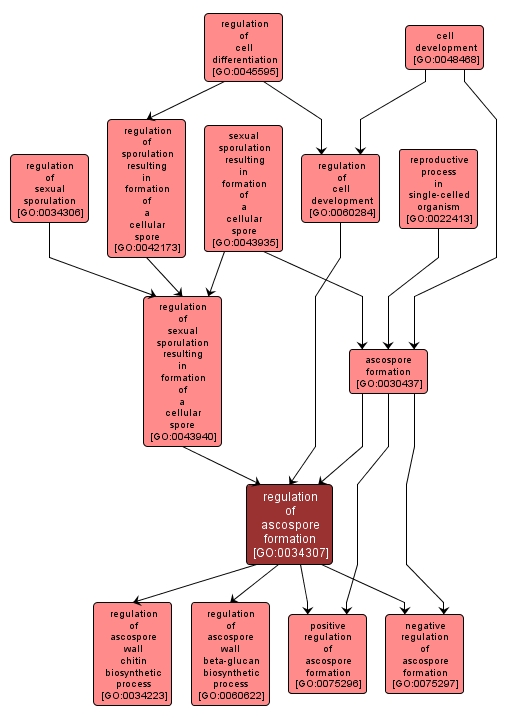GO TERM SUMMARY
|
| Name: |
regulation of ascospore formation |
| Acc: |
GO:0034307 |
| Aspect: |
Biological Process |
| Desc: |
Any process that modulates the frequency, rate or extent of ascospore formation. An example of this process is found in Saccharomyces cerevisiae. |
Synonyms:
- MAPKKK cascade during sporulation
|
|

|
INTERACTIVE GO GRAPH
|














